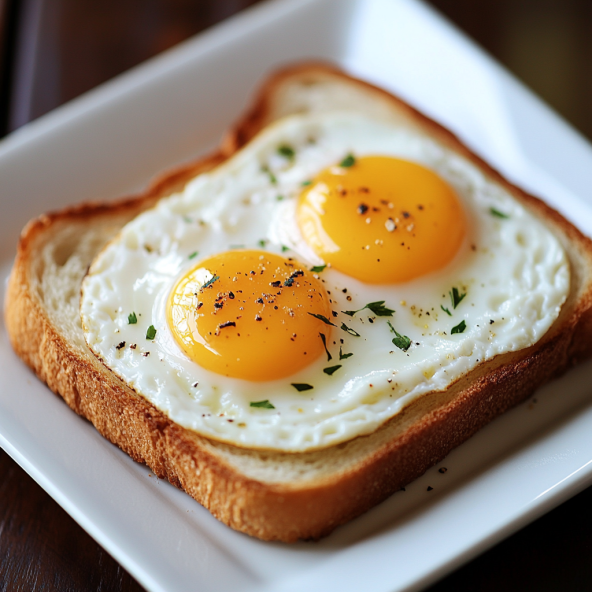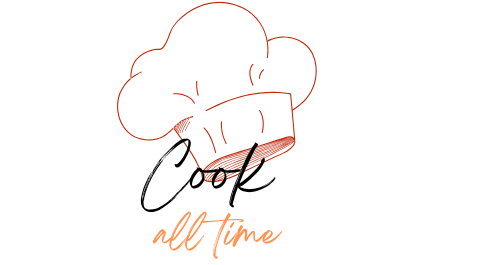Introduction: The Universal Love for Eggs and Toast
Eggs and toast are a classic combination enjoyed by many worldwide, transcending cultures and generations. Simple yet satisfying, this dish is loved for its versatility, ease of preparation, and comforting flavors. But beyond the basic ingredients, there is a rich history behind this humble meal. A common question that arises is what is the slang for eggs and toast? This phrase has evolved through time, taking on different forms and meanings in various cultures. Understanding this slang can offer insight into the significance of food in society and how language shapes our culinary experiences.
With the rise of food culture, slang surrounding eggs and toast continues to evolve. Pop culture influences the way we speak about food. The dish may seem basic, but its cultural context is significant. The slang surrounding it highlights eggs and toast as a comfort food staple.
Table of Contents
Origins of Breakfast Slang: What is the Slang for Eggs and Toast?
Historical Roots of Eggs and Toast
The combination of eggs and toast dates back to early human cooking, when both bread and eggs were readily available ingredients. Historically, bread has been a staple food item in many cultures, often paired with eggs to create a filling meal. Whether fried, scrambled, or poached, eggs have provided essential protein, while bread offered a hearty base. The combination of these two ingredients became an inexpensive, nutritious meal that quickly gained popularity among people from all walks of life.
Over time, this simple yet versatile dish became a breakfast favorite. It appeared on dining tables, from working-class homes to high-end restaurants.
Cultural Adaptations Across the Globe
The concept of eggs and toast is universal, but different cultures have created their own variations. In the United States, eggs and toast often come with sausage. In the UK, the dish may include baked beans, grilled tomatoes, and mushrooms, known as a full English breakfast. The French enjoy a similar dish called “pain perdu,” where the bread is soaked in an egg mixture and fried. Despite these cultural adaptations, the simplicity of eggs and toast remains the same.
These global adaptations reflect the flexibility and universal appeal of the dish.
The Evolution of Breakfast Slang
As with many food trends, language surrounding breakfast has evolved over time. What is the slang for eggs and toast? Over the years, various playful terms have developed, particularly in the world of diners and casual eateries. These terms not only describe the dish itself but also evoke a sense of familiarity and community. Slang has provided an avenue for people to engage with food in a more creative and casual way, making the experience of eating even more enjoyable.
Next, we’ll explore popular slang terms for eggs and toast. We’ll look at their historical origins and how they’ve influenced modern food culture.
Common Slang Terms for Eggs and Toast: What is the Slang for Eggs and Toast?
Diner Lingo: “Adam and Eve on a Raft”
One well-known slang term for eggs and toast is “Adam and Eve on a raft.” It originated in American diners. The term refers to two eggs (Adam and Eve) placed on a slice of toast (the raft). The clever wordplay adds humor to a simple dish. Over time, “Adam and Eve on a raft” became a popular order at diners across the United States. It gave personality to a dish once seen as basic and functional.
The term has persisted in diner culture, offering a fun, lighthearted way to order eggs and toast.
Regional Variations in Breakfast Slang
“Adam and Eve on a raft” is a well-known slang term, but many regional variations exist. In some parts of the U.S., it’s called “eggs on a shingle.” This version often includes gravy. In Australia, the dish may be called “egg on toast.” However, the slang can vary depending on local influences.
This regional variation demonstrates the adaptability of food language as it shifts and changes depending on where you are. In some cultures, eggs and toast take on more creative forms, incorporating different flavors and textures.
Pop Culture and Its Influence on Food Language
Pop culture has greatly influenced food language, especially in casual settings. TV shows, movies, and social media have all shaped how we talk about food. For example, characters in popular TV shows might order “eggs on toast” using humor or quirky language. This makes the dish feel more connected to modern food trends.
The slang for eggs and toast continues to evolve, influenced by popular culture. This keeps the dish relevant in today’s fast-paced food environment.
Why Slang for Eggs and Toast Matters in Food Culture
The Role of Diners in Shaping Food Slang
One of the main reasons slang emerges around food, especially in diners and casual eateries, is because of the relaxed, communal atmosphere that fosters informal language. Diners were often gathering places where workers and travelers would congregate for a quick, hearty meal. In this context, slang served as a way to create camaraderie and add personality to the food experience. Over time, the language used in these settings became more entrenched in popular culture, making it a normal part of how people talk about food.
Slang has a way of transforming everyday meals, like eggs and toast, into something more special.
Linguistic Creativity in Everyday Language
Food slang reflects the creativity and playfulness that often accompany the language of everyday life. People enjoy finding new and fun ways to describe the foods they eat, and slang provides an opportunity to do so. In the case of eggs and toast, phrases like “Adam and Eve on a raft” or “eggs on a shingle” add a level of creativity that makes ordering a dish more enjoyable.
This linguistic creativity helps food feel more personal and accessible to people from all walks of life.
Slang as a Reflection of Community Identity
Food slang, particularly in regions where breakfast dishes are important, can reflect the identity of a community. For example, the use of certain slang terms in specific areas may signify regional pride or a shared understanding of food culture. These phrases help to establish connections among people who enjoy the same foods, creating a sense of belonging. The term “What is the slang for eggs and toast?” reflects this community-driven aspect of language, as people find comfort in familiar, localized food terminology.
Modern-Day Interpretations of “What is the Slang for Eggs and Toast?”
How Slang Adapts to Contemporary Food Trends
As food trends continue to evolve, so does the slang surrounding popular dishes like eggs and toast. With the rise of plant-based diets, health-conscious eating, and new cooking techniques, the way people talk about eggs and toast has changed. Terms like “avocado toast” and “vegan egg on toast” have emerged as modern adaptations of the classic dish, showing how food slang adapts to contemporary trends.
These adaptations ensure that eggs and toast remain a relevant and versatile meal choice for modern diners.
Social Media and the Evolution of Food Names
Social media has played a large role in the evolution of food slang. Platforms like Instagram and TikTok have made food language more accessible, with food influencers and chefs showcasing unique ways to prepare and describe eggs and toast. Social media allows for the rapid spread of new slang terms, making it easier for people to connect over shared food experiences and preferences.
Through social media, dishes like “eggs on toast” are gaining new, trendy names, reflecting the dynamic nature of modern food culture.
Do Younger Generations Use Breakfast Slang?
As food culture shifts, younger generations are playing a key role in popularizing new food slang. While older terms like “Adam and Eve on a raft” may still hold significance, younger generations are creating new ways of talking about classic dishes. Social media often shares these slang terms, ensuring that food language continues to evolve and adapt.
Younger generations, in particular, are helping to redefine how we talk about eggs and toast. Consequently, this is making it an exciting time for food slang.
Cultural Significance of Eggs and Toast
Eggs and toast are not just a classic breakfast duo; they hold significant cultural meaning around the world. Over time, this simple meal has become much more than just food—it symbolizes comfort, tradition, and familiarity. In many households, eggs and toast serve as a go-to meal for both the young and old. But what is the slang for eggs and toast? Slang terms around this dish have evolved, giving it unique identities in different cultures. These terms represent not only the dish itself but also the warmth and familiarity it evokes.
Let’s dive deeper into the cultural significance of eggs and toast, starting with its symbolism in comfort foods.
Symbolism in Comfort Foods
Eggs and toast, often regarded as comfort food, hold a special place in many cultures. The dish evokes a sense of home, warmth, and simplicity. The familiar combination of crispy toast and a soft, protein-packed egg is both satisfying and nurturing. It’s a dish that can be made quickly and requires minimal ingredients, which makes it a staple in many households.
simplicity and nourishment, further enriched by the creative names we assign to them. Explore other comforting breakfast ideas here.
Comfort foods like eggs and toast also carry emotional weight. They are often associated with moments of relaxation or nostalgia, reminding people of their childhoods, family gatherings, or comforting routines. In this way, eggs and toast transcend their culinary purpose and become a representation of emotional comfort.
Eggs and Toast in Literature and Media
Over the years, eggs and toast have appeared in literature and media, further cementing their status as cultural staples. From novels to movies, the dish often makes an appearance during moments of reflection, simplicity, or daily routine. It’s a dish that writers and filmmakers use to convey a sense of normalcy or homeliness.
In TV shows, eggs and toast often serve as the quintessential breakfast or late-night snack, symbolizing the simplicity of daily life. Moreover, the dish’s ability to transcend media genres demonstrates its versatility and timeless appeal. As a result, it has become an iconic food that remains a constant presence in many narratives, further enhancing its cultural significance.
How the Dish Represents Simplicity and Versatility
Eggs and toast represent simplicity and versatility, two qualities that have made the dish so enduring. The combination can be enjoyed in a variety of ways: with a fried egg, scrambled egg, or poached egg, and paired with different types of bread. The beauty of eggs and toast lies in its ability to adapt to different tastes and preferences.

Furthermore, the dish is adaptable across various cultures and can be tailored to fit health-conscious diets or indulgent cravings. From a quick snack to a hearty meal, eggs and toast can take on many forms without losing its core appeal.
Fun Ways to Reinvent Eggs and Toast
While the classic combination of eggs and toast is beloved for its simplicity, there are countless creative ways to reinvent this dish. By adding new ingredients, experimenting with cooking techniques, or exploring international flavors, you can give your eggs and toast a fresh twist. These fun variations elevate the dish and bring excitement to a familiar favorite.
Let’s take a look at some of the most popular ways to reinvent eggs and toast.
Creative Variations on the Classic Dish
Eggs and toast offer endless possibilities for creativity. One popular variation is avocado toast, where mashed avocado replaces butter for a creamier, healthier spread. You can also top your eggs with ingredients like cheese, salsa, or herbs, adding new flavors to each bite.
Another fun variation is the “Egg in a Hole” technique, where an egg is cracked into a hole cut into the center of the toast and then cooked together. This creative method offers a delightful balance of crispy toast and runny egg yolk, making for a satisfying breakfast or brunch option.
Healthy Twists on Eggs and Toast
For those looking to make eggs and toast healthier, there are several options. You can opt for whole-grain or sprouted bread to increase the fiber content. Adding vegetables like spinach, tomatoes, or mushrooms boosts the nutrient profile of the dish while maintaining its deliciousness.
Substituting eggs with egg whites or using plant-based egg alternatives also offers a lower-calorie version of the dish. For those following a low-carb or keto diet, you can use almond flour bread or a similar low-carb alternative to keep the meal in line with dietary preferences.
International Flavors and Fusion Ideas

Eggs and toast can easily take on international flavors. For instance, a Mediterranean version might include feta cheese, olives, and a drizzle of olive oil on top of eggs and toast. Or you can try an Indian-inspired version with scrambled eggs flavored with turmeric, cumin, and coriander, served on naan or whole-grain bread.
Fusion dishes combine eggs and toast with diverse culinary influences, adding unique and exciting twists to the dish.
FAQs About the Slang for Eggs and Toast
What is the most popular slang for eggs and toast?
The most popular slang term for eggs and toast is “Adam and Eve on a raft,” commonly used in diners. This playful term refers to two eggs (Adam and Eve) served on a piece of toast (the raft). It’s a term that has stood the test of time and continues to be used today in casual food settings.
Where does “Adam and Eve on a Raft” originate?
“Adam and Eve on a raft” originated in American diners, where servers would use quirky phrases to describe simple dishes. This catchy slang term quickly became associated with eggs and toast, and over the years, it spread to various regions across the U.S., becoming a familiar part of diner lingo.
Are there other slang terms for breakfast foods?
Yes, there are many slang terms for other breakfast foods, especially in diners and casual eateries. For example, “eggs over easy” refers to eggs fried on both sides with the yolk still intact, while “sunny side up” means eggs are fried only on one side. Many regions also have their own unique breakfast slang terms, adding regional charm to the food.
Is breakfast slang still used today?
Yes, breakfast slang remains prevalent, particularly in diners and casual restaurants. While it may not be as widely known among younger generations, the use of slang like “Adam and Eve on a raft” still lingers in certain culinary communities and maintains its nostalgic value.
What is the significance of slang in food culture?
Slang in food culture adds an element of fun, creativity, and familiarity to everyday meals. It helps to humanize the food experience and makes dining more relatable. Slang also reflects the cultural and social contexts in which food is consumed, offering insight into local customs, preferences, and culinary traditions.
How can I learn more about diner lingo?
To learn more about diner lingo, you can explore books on culinary history, visit diners and eateries that serve traditional American fare, or watch classic movies and TV shows set in diners. There are also plenty of online resources dedicated to diner terminology that can provide a deeper understanding of food slang.
Conclusion: Why Breakfast Slang Matters
In conclusion, understanding what is the slang for eggs and toast? reveals much about food culture and how language evolves in relation to what we eat. The use of slang terms like “Adam and Eve on a raft” reflects not only the simplicity of eggs and toast but also the creativity and cultural influence surrounding food. From its historical roots to modern-day interpretations, breakfast slang continues to shape how we enjoy and discuss food.
Breakfast slang, such as terms for eggs and toast, connects us to a larger culinary tradition, serving as a reminder of the power of language in shaping our food experiences. As food culture continues to evolve, it’s likely that new slang terms will emerge, ensuring that breakfast will always have a playful, dynamic language of its own.

